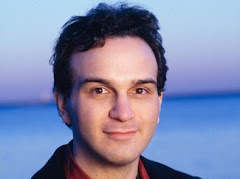Shostakovich’s First Violin Concerto and Brahms’ First Symphony were concert bed-fellows in the debut for violinist Augustin Hadelich and conductor Andreas Delf at DFP on 12 September 2015. One of the most popular 20th century Russian violin concertos amongst concert violinists, this was an excellent choice for the 31-year old German violinist.
Sporting the superbly rich-toned 1723 Kiesewetter Stradivarius violin which was on loan from Chicago’s Stradivari Society, Hadelich gave a most impressive performance of the Shostakovich concerto.
The opening Nocturne was suitably eerie in feeling and mood, though slightly lacking in tonal colours in the arching and repetitive phrases. Hadelich played the diabolic second movement (Scherzo) with great rhythmic steadiness but with tremendous technical accuracy and laser-like and pin-point intonation. Conductor Delfs accompanied Hadelich well but there were some slight ensemble inaccuracies from the MPO in this movement.
Hadelich played the brooding Passacaglia with calm assurance. This led into the extended solo cadenza, which was played faster than usual with less obvious phrasing and point-making. The last movement was festive and virtuosically played, drawing immensely exciting playing from Hadelich. This was one of the very best performances of the Shostakovich in the DFP Hall.
The encore, was JS Bach’s Andante from the Solo Sonata No 2 in A minor BWV1003. This was a lovely rendition of this movement, with perfect balancing of the melody as well as the accompanying line.
Hadelich’s rising excellence as a front-rank violinist under 40 years old should stand him in good stead in the coming years. Perhaps it might be interesting to hear him in exciting repertoire like Paganini’s Violin Concerto No 4 in D minor in the coming years at the DFP.
In the second half, maestro Delfs gave us a typically Germanic interpretation of the Brahms First Symphony. The first movement was weighty and rhythmic and the second movement was lyrically songful with excellent solos from principal oboist Simon Emes and leader Peter Danis. After the brief third movement, the finale was suitably grand in the Karajan manner of interpretation but without the late Austrian maestro’s command and grandeur of sound.
Subscribe to:
Post Comments (Atom)

















































No comments:
Post a Comment